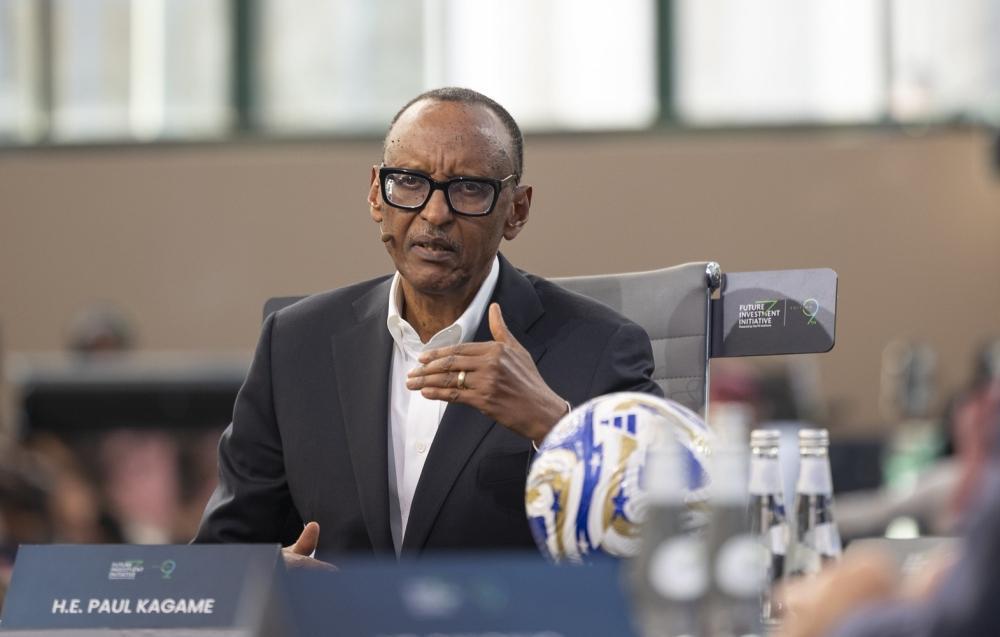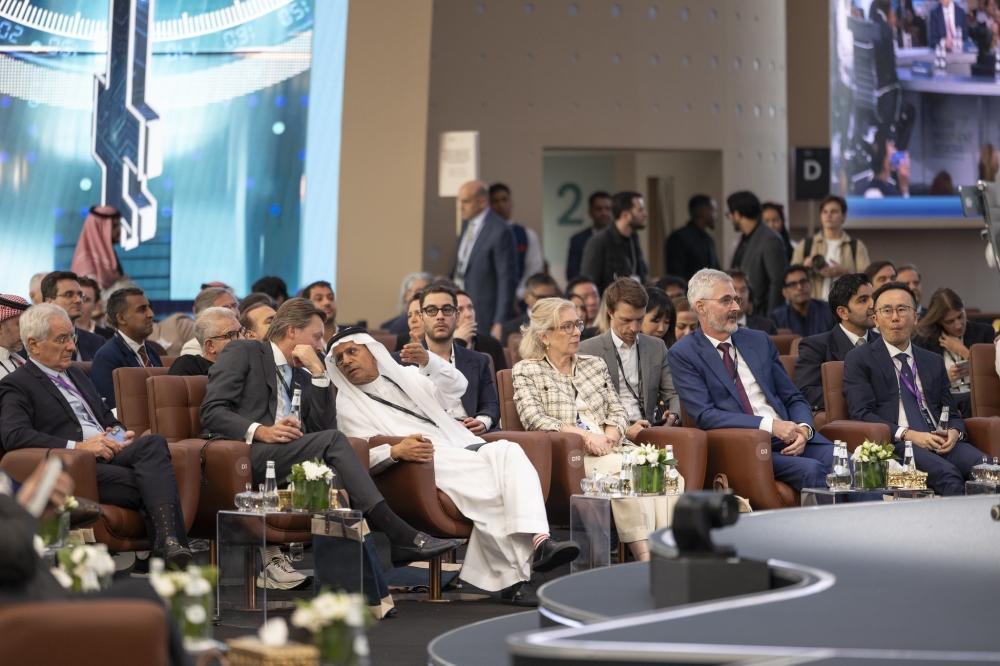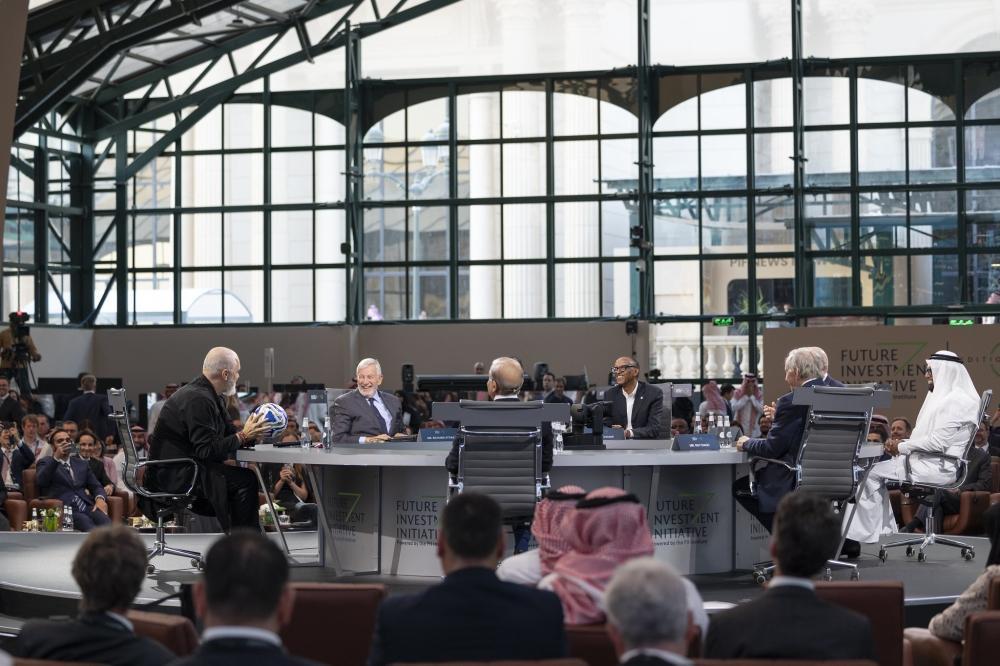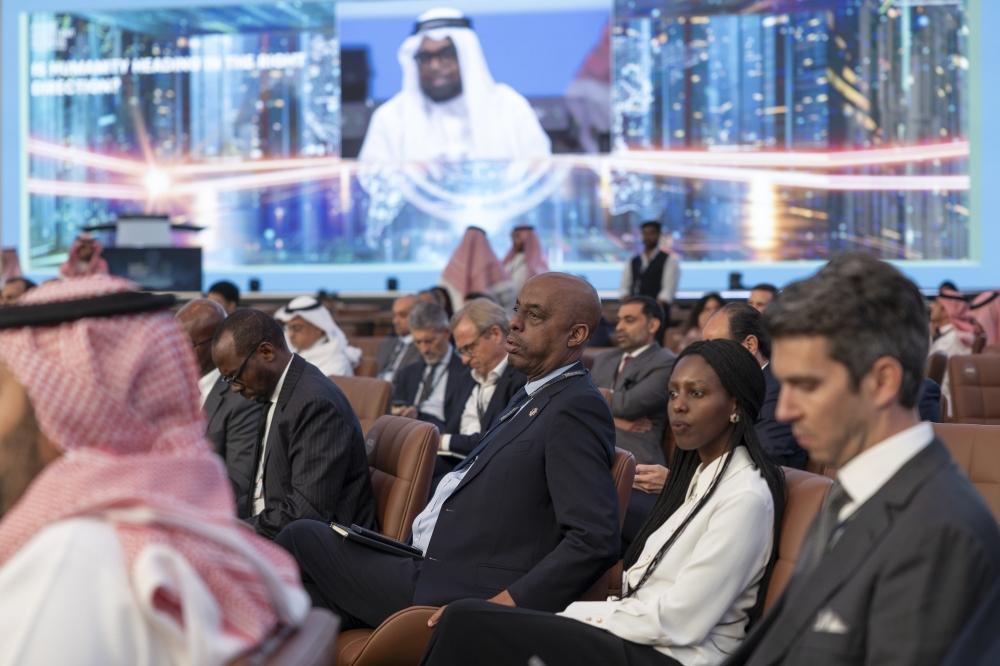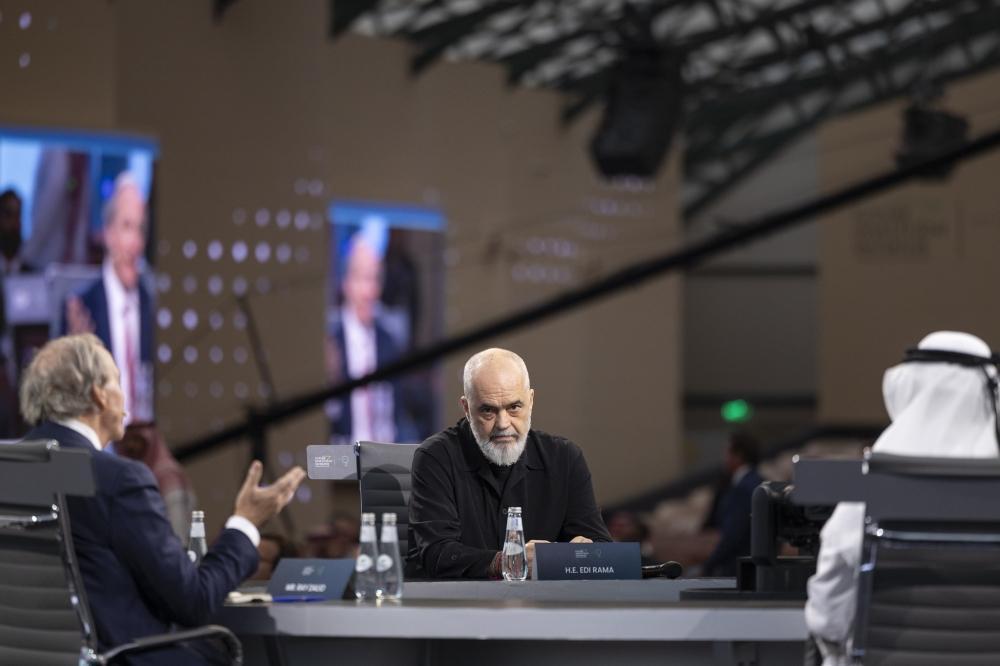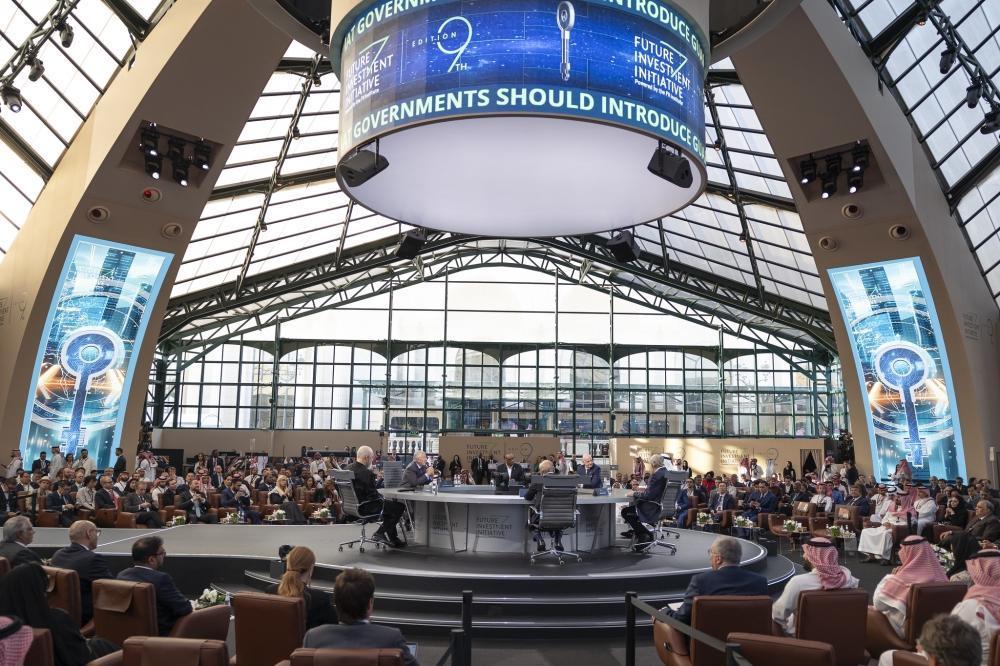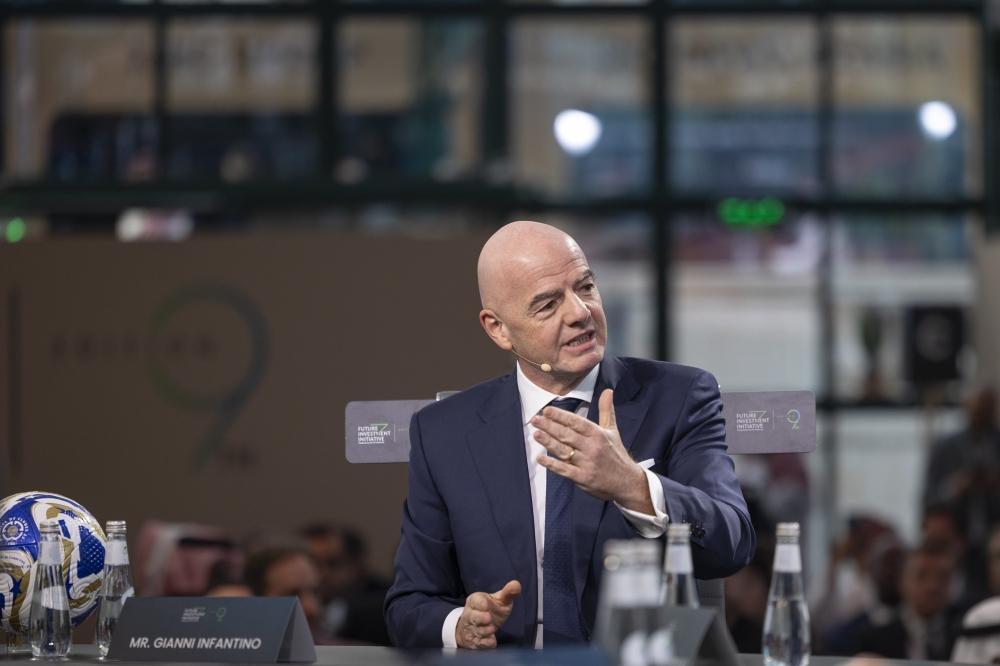Africa-Press – Rwanda. President Paul Kagame has said that people’s trust in leaders is built on delivery, arguing that citizens must feel the impact of decisions in their everyday lives.
The Head of State added that leaders cannot rely on promises if those promises are not backed by concrete results that people can evaluate.
Delegates follow Kagame while speaking at the 9th Future Investment Initiative (FII9), in Riyadh, Saudi Arabia
Kagame was speaking at the 9th Future Investment Initiative (FII9), in Riyadh, Saudi Arabia, in high-level panel discussion titled “Is Humanity Heading in the Right Direction?” which explored the global trajectory of progress and shared prosperity.
“The single most important… even though there are many aspects to leadership, the first is delivery,” he said.
“As leaders, you know what the people expect and need, and you have to work out ways to make sure that delivery is made to the expectations of the people.”
The panel brought together leaders including Guyana President Mohamed Irfaan Ali, President Gustavo Petro of Colombia, Prime Minister Edi Rama of Albania, and Prime Minister Muhammad Shahbaz Sharif of Pakistan.
Other speakers included Ray Dalio, Founder of Bridgewater Associates, and Gianni Infantino, President of FIFA.
President Kagame observed that when leaders’ statements and citizens’ lived experiences do not align, trust will not emerge. He maintained that accountability starts with matching words and actions.
“Trust can be created by making sure what you have delivered is measurable,” he added.
Sharing Rwanda’s post-Genocide recovery as an example, Kagame said that a mindset of self-belief and responsibility has driven the country’s progress over the past three decades.
“We are small geographically, but we are not a people of small minds or spirit. There is nobody who will come from anywhere to deliver on anybody’s problem without the people working on themselves first.”
The Head of State added that leaders cannot rely on promises if those promises are not backed by concrete results that people can evaluate.
He pointed out that Rwanda’s model is grounded in learning from crisis, building confidence, and maintaining the focus on national development goals.
Asked what developing nations must do to reshape their economic futures, Kagame said change begins with practical reforms at home.
“It is not an issue of size but of mind and spirit and practice. We have learnt to take care of our business by holding ourselves accountable and measuring results throughout this journey.”
While cooperation remains important, Kagame said that that only comes after countries have strengthened their internal foundations.
“We prepare the ground for others from outside who can come and make investments with us or do trade with us. We have prioritized knowing our limitations and knowing how to go around these limitations while tapping into our own potential.”
‘Development not trickled to geography’
Guyana’s President Ali argued that development must not be defined by population size or global visibility.
He said that investment in people, technology, and infrastructure is essential for competitiveness and for addressing climate, food, and migration pressures.
While Guyana is recognised for its fast-growing economy and major oil discoveries, President Ali said that its role in preserving global biodiversity remains under-appreciated.
He said that rising economies cannot be locked into a “big-country mindset” that ignores the solutions emerging from smaller nations.
Pakistan’s Prime Minister said emerging economies face the challenge of attracting long-term investment while protecting social stability. He pointed to the digitisation of tax systems and anti-corruption reforms as necessary steps to building investor confidence and economic resilience.
The three-day FII9 conference, running under the theme, “The Key to Prosperity: Unlocking New Frontiers of Growth,” is convening global leaders, leading investors and innovators, captains of industry, and policymakers in government, business, and technology.
Since 2017, the FII Institute has been an annual event bringing together stakeholders interested in investing in long-standing solutions to global challenges.
The event focuses on four areas where inequalities are glaring, to work together on collective solutions, including AI and robotics, education, healthcare, and sustainability.
The High Level panel explored the global trajectory of progress and shared prosperity.
The high-level panel discussion titled “Is Humanity Heading in the Right Direction” explored the global trajectory of progress and shared prosperity.
Gianni Infantino, President of FIFA was speaks at the same panel with President Kagame
For More News And Analysis About Rwanda Follow Africa-Press

